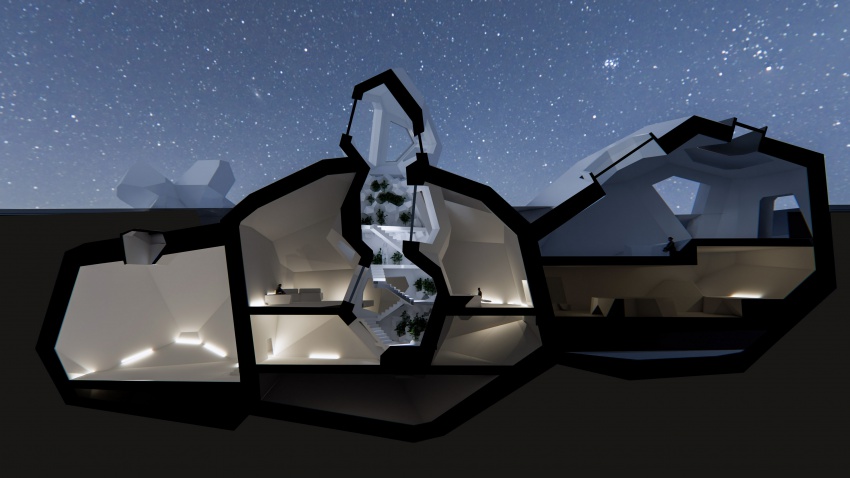Difference between revisions of "Shared:WS2024MSc2SAG2Presentations"
| (5 intermediate revisions by one user not shown) | |||
| Line 2: | Line 2: | ||
| − | [[File: | + | [[File:section social day.jpg | 850px]] |
---- | ---- | ||
| Line 24: | Line 24: | ||
<div style="float:left; width: 130px; height 30px; border: 1px solid #aaa; margin-right:10px;" align="center"> | <div style="float:left; width: 130px; height 30px; border: 1px solid #aaa; margin-right:10px;" align="center"> | ||
[[Shared:WS2024MSc2SAG2Presentations|'''Presentations''']] | [[Shared:WS2024MSc2SAG2Presentations|'''Presentations''']] | ||
| + | </div> | ||
| + | <div style="float:left; width: 130px; height 30px; border: 1px solid #aaa;" align="center"> | ||
| + | [[Shared:WS2024MSc2SAG2Video|'''Video''']] | ||
</div> | </div> | ||
</div> | </div> | ||
<br> | <br> | ||
| − | |||
| − | ==''' | + | =='''Final presentation''' | 19.04.2024== |
| + | <html> | ||
| + | <iframe src="http://cpa.roboticbuilding.eu/images/7/70/Final_presentation_01_compressed.pdf" frameborder="0" height="500px" width="100%"></iframe> | ||
| + | </html> | ||
| + | |||
| + | =='''Moonoroi''' | midterm presentation 08.03.2024== | ||
| + | |||
| + | The presentation includes the design concept for a Moon station based on the Voronoi cells principle. The project is driven by the idea of helping scientists in space maintain their circadian rhythms by the use of light - both natural and artificial. | ||
| + | |||
| + | <html> | ||
| + | <iframe src="http://cpa.roboticbuilding.eu/images/3/3f/Moonoroi-240308-Gr.2.pdf" frameborder="0" height="500px" width="100%"></iframe> | ||
| + | </html> | ||
| + | |||
| + | =='''Circadian rhythms''' | presentation 01.03.2024== | ||
| + | |||
| + | In this stage of the project, we focused mostly on the research on our project's driving idea - circadian rhythms and psychological effects of spending time in space. Our goal was to understand how we can provide lighting strategies that help to maintain a healthy internal clock of the astronauts, and to make the Moon station self-sustainable. We implemented those ideas in the first iteration of the parametric design. | ||
| + | |||
| + | <html> | ||
| + | <iframe src="http://cpa.roboticbuilding.eu/images/3/39/Moonoroi-240301-Gr2.pdf" frameborder="0" height="500px" width="100%"></iframe> | ||
| + | </html> | ||
| + | |||
| + | =='''Moonstation - first ideas''' | presentation 23.02.2024 | case study Rhizome 2.0== | ||
| + | |||
| + | We started the design process by analyzing the context of our chosen site - the Moon. The functional program proposed for the building is based on the requirements from the "2023 ACY Moon Station" competition and our personal research. Thanks to the case study of the Rhizome 2.0 project we could better understand the specifics of Human to Robot Interaction and digital prototyping. | ||
| + | |||
| + | <html> | ||
| + | <iframe src="http://cpa.roboticbuilding.eu/images/1/1a/Moonoroi-240223.pdf" frameborder="0" height="500px" width="100%"></iframe> | ||
| + | </html> | ||
Latest revision as of 13:19, 11 July 2024
Group 2: Marina Kathidjiotis - Katarzyna Prokopiuk - Cătălina Perșunaru - Jan Kwaśnik
Final presentation | 19.04.2024
Moonoroi | midterm presentation 08.03.2024
The presentation includes the design concept for a Moon station based on the Voronoi cells principle. The project is driven by the idea of helping scientists in space maintain their circadian rhythms by the use of light - both natural and artificial.
Circadian rhythms | presentation 01.03.2024
In this stage of the project, we focused mostly on the research on our project's driving idea - circadian rhythms and psychological effects of spending time in space. Our goal was to understand how we can provide lighting strategies that help to maintain a healthy internal clock of the astronauts, and to make the Moon station self-sustainable. We implemented those ideas in the first iteration of the parametric design.
Moonstation - first ideas | presentation 23.02.2024 | case study Rhizome 2.0
We started the design process by analyzing the context of our chosen site - the Moon. The functional program proposed for the building is based on the requirements from the "2023 ACY Moon Station" competition and our personal research. Thanks to the case study of the Rhizome 2.0 project we could better understand the specifics of Human to Robot Interaction and digital prototyping.
